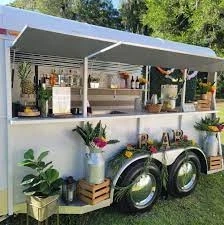The Evolution of Mobile Bars: A Blend of Convenience and Innovation
Introduction:In the ever-evolving landscape of technology and consumer preferences, the mobile bar has emerged as a fascinating intersection of convenience and ...


Introduction:In the ever-evolving landscape of technology and consumer preferences, the mobile bar has emerged as a fascinating intersection of convenience and ...

